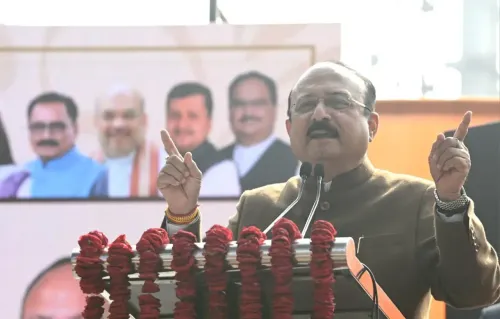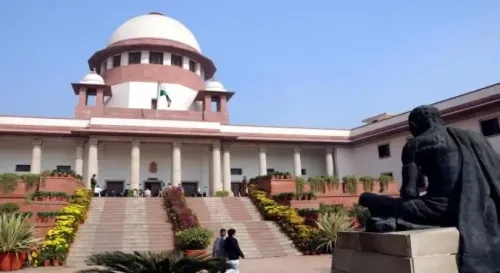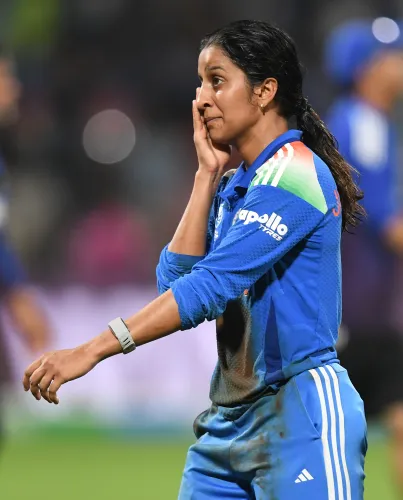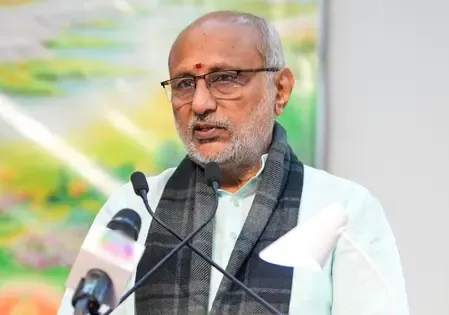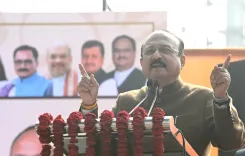Can Women’s Education and Self-Reliance Propel India to Become a Developed Nation?
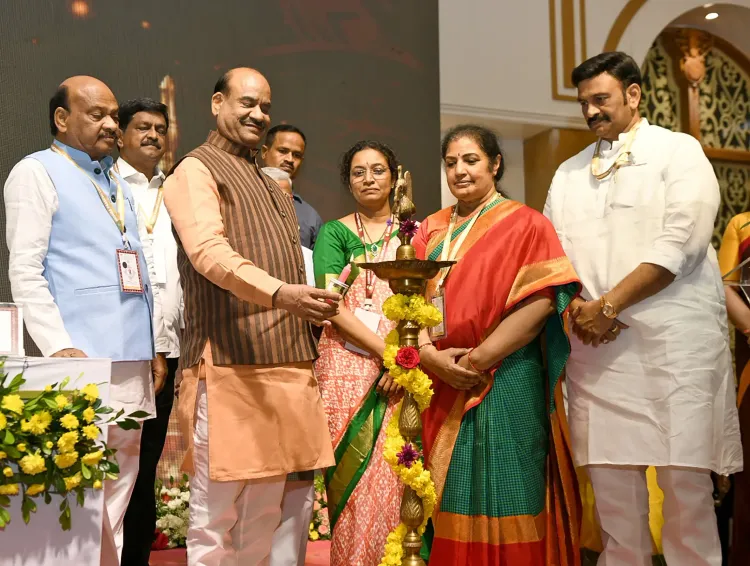
Synopsis
Key Takeaways
- Women’s education is a cornerstone for national development.
- Empowerment of women leads to inclusive policies.
- Nari Shakti Vandan Adhiniyam enhances women’s representation in governance.
- Collaboration among women leaders is crucial for growth.
- Gender responsive budgeting promotes equitable resource allocation.
Tirupati, Sep 14 (NationPress) Lok Sabha Speaker Om Birla proclaimed on Sunday that India can achieve the status of an inclusive and developed nation only when women attain education and become self-reliant.
While inaugurating the first-ever National Conference of the Committees on Empowerment of Women of Parliament and State/UT Legislatures here, he highlighted that women-led development, rooted in the empowerment of women and the welfare of children, is essential for realizing India’s vision of Viksit Bharat by 2047.
The two-day Conference, themed ‘Women-led Development for Viksit Bharat’ with a special emphasis on ‘Gender Responsive Budgeting’ and ‘Empowering Women to Overcome Challenges of Emerging Technologies’, has welcomed representatives from over 20 states.
Discussions will focus on fortifying women’s leadership, boosting participation in governance, ensuring inclusive policies, and promoting the vision of an India where women are not merely beneficiaries but vital architects of national development.
Om Birla described the conference as a significant milestone in India’s democratic evolution, asserting that such gatherings are crucial for sharing ideas and experiences that lead to inclusive policy-making.
This event has united lawmakers, policymakers, and women leaders nationwide to collaboratively develop strategies for women’s leadership, equality, and inclusion across all life dimensions.
He emphasized that the Tirupati Conference sends a strong message that women’s empowerment and child welfare are core issues, foundational to national advancement. By focusing on women’s leadership from Panchayats to Parliament, endorsing inclusive laws and policies, and promoting economic independence for all women, this conference signifies a pivotal step towards realizing the vision of Viksit Bharat by 2047.
Om Birla asserted that women’s empowerment is an ongoing process that requires comprehensive policies to address the needs of women throughout all life stages. He underscored the necessity of ensuring women's participation from Panchayats to Parliament, stating that increasing women's presence in policy-making institutions will help tackle the historical challenges faced by women.
As India enters the Amrit Kaal, he noted that Nari Shakti is emerging as an unstoppable force propelling the nation towards strength and inclusivity.
The strength, leadership, and involvement of women in every national sphere are not only matters of equity but also key to inclusive and sustainable growth, he remarked. As India rapidly progresses in education, science, governance, technology, entrepreneurship, and innovation, the future and role of women will significantly influence the nation’s pace and character of development.
He acknowledged that Indian women are excelling in diverse fields—from space exploration and science to sports and literature, and from local governance to national leadership. The nation takes pride in having witnessed women serving as Presidents, Prime Ministers, Chief Ministers, Governors, Speakers, and legislators, showcasing its commitment to women’s leadership, Om Birla noted.
In this regard, he referred to the Nari Shakti Vandan Adhiniyam as a historic constitutional amendment that institutionalizes this transformation. He proudly recalled that it was the first Bill passed in the new Parliament building, ensuring reserved seats for women in the Lok Sabha and State Legislative Assemblies. This landmark legislation transcends symbolism, securing women their rightful place in governance and fostering a new generation of women leaders to shape the nation’s future.
He also remarked that the Committees on Empowerment of Women at both national and state levels operate in a non-partisan manner and play a vital role in meticulously reviewing laws, policies, and schemes to guarantee inclusivity and efficiency. Their recommendations must ensure that even the most marginalized women and children in the remotest regions of the country gain access to health, education, technology, and growth opportunities.
The inaugural session was graced by Deputy Chairman, Rajya Sabha, Harivansh Narayan Singh; Chairperson, Parliamentary Committee on Empowerment of Women, D. Purandeswari; Speaker, Andhra Pradesh Legislative Assembly, C. Ayyannapatrudu; and Chairman, Andhra Pradesh Legislative Council, Koyye Moshenu Raju; along with Ministers of the Andhra Pradesh Government, Members of the Legislative Assembly and Council, and Chairpersons and Members of Committees on Empowerment of Women from Parliament and State/UT Legislatures.


